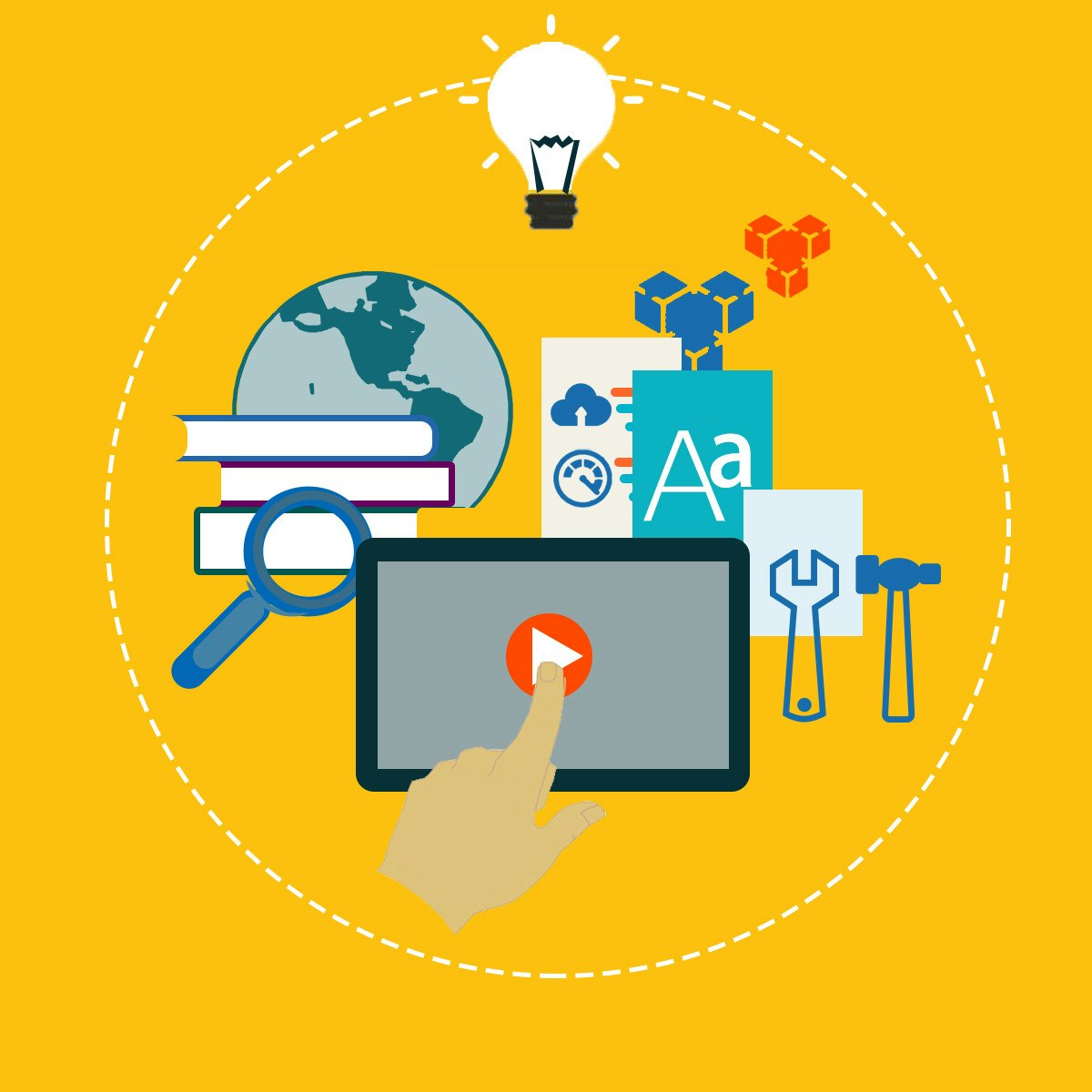Learning Technologist
A Comprehensive Guide to the Learning Technologist Career
A Learning Technologist is a professional who specializes in leveraging technology to enhance and support teaching and learning experiences. They work at the intersection of education and technology, focusing on the design, development, implementation, and evaluation of digital tools and resources. This role is becoming increasingly vital as technology continues to transform how education is delivered and consumed across various sectors. Learning Technologists are instrumental in identifying and integrating the most effective technological solutions to meet specific learning objectives and engage learners in innovative ways.
The field of learning technology offers exciting opportunities to shape the future of education and training. Professionals in this role often find themselves at the forefront of educational innovation, exploring and implementing cutting-edge tools like artificial intelligence (AI), virtual reality (VR), and interactive multimedia to create dynamic and effective learning environments. The ability to collaborate with diverse stakeholders, from educators and subject matter experts to IT professionals and learners themselves, makes this career path both challenging and rewarding. Furthermore, the impact of a Learning Technologist's work can be far-reaching, improving access to education and fostering more engaging and personalized learning journeys for individuals across various industries and educational levels.
Introduction to Learning Technologist
Understanding the role of a Learning Technologist is crucial in today's rapidly evolving educational landscape. These professionals are key to integrating technology effectively into learning environments.
Defining the Role: What Does a Learning Technologist Do?
A Learning Technologist is responsible for managing and developing an organization's learning technologies. This includes researching, implementing, and maintaining various digital tools and platforms to support educational or training goals. They often work to create and curate digital content, design interactive learning activities, and incorporate multimedia elements to enhance the learning process. The role demands a blend of technical expertise, pedagogical understanding, and project management skills.
Learning Technologists ensure that the chosen technologies align with learning objectives and effectively engage learners. They are also involved in training and supporting educators and learners in using these technologies. Essentially, they bridge the gap between educational theory and technological application.
This career is dynamic, requiring continuous learning to keep pace with emerging technologies and new pedagogical approaches. The work is often collaborative, involving interaction with educators, instructional designers, IT staff, and learners.
A Brief History: The Evolution of Learning Technology
The role of the Learning Technologist has evolved alongside advancements in educational technology. Initially, the focus was often on supporting basic computer-assisted instruction and managing early learning management systems (LMS). As digital tools became more sophisticated and the internet more ubiquitous, the scope of the role expanded significantly.
The rise of online learning platforms, multimedia content, and interactive simulations created a need for specialists who could not only manage these technologies but also strategically integrate them into curriculum design. More recently, the advent of AI, adaptive learning systems, and immersive technologies like VR and AR has further broadened the responsibilities and opportunities for Learning Technologists. This historical progression reflects a shift from a purely technical support function to a more strategic role focused on enhancing the overall learning experience.
The COVID-19 pandemic also accelerated the adoption of digital learning, highlighting the critical importance of Learning Technologists in enabling remote and hybrid learning models. This period underscored the need for professionals skilled in creating engaging and accessible online learning environments.
Key Industries and Sectors: Where Do Learning Technologists Work?
Learning Technologists are employed across a diverse range of industries and sectors. Educational institutions, including K-12 schools, colleges, and universities, are major employers, where Learning Technologists support faculty in integrating technology into teaching and manage campus-wide learning platforms.
Corporations also heavily rely on Learning Technologists for employee training and development programs. This can involve creating e-learning modules for onboarding, compliance training, or professional skill development. Government agencies and non-profit organizations also utilize Learning Technologists to develop educational materials and training programs for various initiatives. The healthcare industry employs them for medical education and patient education programs, while the technology sector itself hires Learning Technologists to create training for software and hardware products. Essentially, any organization that provides education or training can benefit from the expertise of a Learning Technologist.
Core Responsibilities of a Learning Technologist
The day-to-day work of a Learning Technologist is varied and dynamic, involving a range of critical tasks aimed at optimizing learning through technology.
Designing and Implementing Educational Technologies
A primary responsibility of a Learning Technologist is the design and implementation of educational technologies. This involves identifying appropriate technology solutions that align with specific learning objectives and the needs of the learners. They research and evaluate various tools, from learning management systems (LMS) and virtual classrooms to interactive simulations and multimedia authoring software.
Once technologies are selected, Learning Technologists are often responsible for their setup, configuration, and integration into existing educational frameworks. They may also be involved in developing digital learning materials, such as online courses, interactive exercises, videos, and other multimedia content designed to be engaging and effective. This requires a good understanding of instructional design principles and how different technologies can support various learning activities.
The implementation phase also includes ensuring that the technology is accessible to all users, including those with disabilities, and that it functions reliably. They often play a key role in troubleshooting technical issues and ensuring a smooth user experience.
Collaborating with Educators and Stakeholders
Effective collaboration is a cornerstone of the Learning Technologist's role. They work closely with educators, subject matter experts (SMEs), instructional designers, IT staff, and learners to ensure that technology is used effectively to support teaching and learning goals. This involves understanding the needs and challenges of different stakeholders and translating them into technological solutions.
Learning Technologists often act as a bridge between technical teams and academic or training departments. They might train faculty or trainers on how to use new educational tools, provide ongoing support, and gather feedback to improve the learning experience. Strong communication and interpersonal skills are vital for building positive working relationships and fostering a culture of technology adoption.
This collaborative process ensures that the technology implemented is not just technically sound but also pedagogically appropriate and aligned with the overall educational strategy of the organization.
Evaluating Learning Outcomes and Tool Efficacy
Another crucial responsibility is the evaluation of learning outcomes and the efficacy of the educational tools and technologies being used. Learning Technologists collect and analyze data to assess whether the technology is helping to achieve the desired learning objectives and to identify areas for improvement. This can involve tracking learner progress, engagement levels, and satisfaction with the digital tools.
They may design and implement assessment strategies within learning platforms and use analytics to understand how learners are interacting with the content and technology. The insights gained from this evaluation process inform decisions about future technology adoption, content development, and pedagogical approaches.
This continuous cycle of implementation, evaluation, and refinement is key to ensuring that educational technology investments deliver real value and contribute positively to the learning experience. It requires an analytical mindset and the ability to interpret data to make informed recommendations.
For those looking to build a strong foundation in creating effective online learning experiences, including activity design and assessment, certain online courses can be highly beneficial. These courses often cover pedagogical principles tailored for digital environments.
Essential Skills and Competencies
To excel as a Learning Technologist, a diverse set of skills and competencies is required, spanning technical know-how, pedagogical understanding, and interpersonal abilities.
Technical Proficiency: Mastering the Tools of the Trade
Strong technical skills are fundamental for a Learning Technologist. This includes proficiency in using and managing various Learning Management Systems (LMS), such as Moodle, Canvas, or Blackboard. Familiarity with content authoring tools like Articulate Storyline or Adobe Captivate is also often necessary for creating interactive e-learning modules.
Beyond specific platforms, a Learning Technologist should have a good understanding of web technologies, multimedia development (video and audio editing, graphic design), and potentially basic scripting or programming concepts. Data analysis skills are increasingly important for evaluating the effectiveness of learning technologies and understanding learner data. [7vuq7w] An aptitude for troubleshooting technical issues and providing user support is also a key aspect of the role. Staying current with new and emerging technologies is crucial in this rapidly evolving field.
Pedagogical Knowledge and Instructional Design Acumen
A deep understanding of pedagogical principles and instructional design theories is what distinguishes a Learning Technologist from a purely IT support role. They need to know how people learn effectively and how technology can be used to support different teaching strategies and learning styles. Knowledge of instructional design models (like ADDIE or SAM) helps in systematically developing effective learning experiences.
Understanding concepts such as Bloom's Taxonomy can aid in designing learning activities that target different levels of cognitive skills. [6vbq27] Learning Technologists should be able to advise educators on how to best integrate technology to achieve specific learning outcomes, create engaging content, and design effective assessments. This often involves translating educational goals into appropriate technological solutions.
Soft Skills: Communication, Collaboration, and Project Management
Beyond technical and pedagogical expertise, strong soft skills are essential for success as a Learning Technologist. Excellent communication skills are needed to explain complex technical concepts to non-technical audiences, collaborate effectively with diverse teams, and provide clear training and support.
Collaboration is key, as Learning Technologists frequently work with educators, subject matter experts, instructional designers, and IT personnel. The ability to build relationships, listen to different perspectives, and work towards common goals is vital.
Project management skills are also highly valuable. Learning Technologists often manage multiple projects simultaneously, from implementing new software to developing online courses. This requires good organizational skills, time management, the ability to set priorities, and see projects through to completion. Adaptability and problem-solving abilities are also important for navigating the challenges that arise in a technology-driven environment.
Formal Education Pathways
Aspiring Learning Technologists often pursue formal education to acquire the necessary knowledge and skills. Several academic routes can lead to a career in this field, often emphasizing an interdisciplinary approach.
Undergraduate Degrees: Building a Foundation
While there isn't always a single, prescribed undergraduate degree for becoming a Learning Technologist, several fields provide a strong foundation. Degrees in Education are a common starting point, offering insights into teaching methodologies, learning theories, and curriculum development. Graduates from these programs often possess a strong pedagogical grounding, which is crucial for the role.
Computer Science or Information Technology degrees can provide the essential technical skills, including understanding software, networks, and multimedia development. Other relevant undergraduate fields include instructional design, communications, psychology, or even specific subject matter areas where educational technology is heavily used (e.g., health sciences, engineering). The key is to combine technical aptitude with an interest in education and learning processes. Some universities may offer specific educational technology or instructional technology tracks within broader degree programs.
Graduate Programs: Specializing in Learning Technology
Many Learning Technologists hold master's degrees, as these programs offer specialized knowledge and advanced skills directly applicable to the field. Master's programs in Educational Technology, Learning Technologies, Instructional Design and Technology, or similar titles are widely available. These programs typically delve deeper into learning theories, instructional design models, research methodologies, and the application of various technologies in educational settings.
Graduate studies often involve hands-on projects, such as designing online courses, developing multimedia learning resources, or evaluating educational software. Some programs may also offer specializations in areas like K-12 technology integration, higher education technology, corporate training technology, or online learning. A master's degree can enhance career prospects, particularly for roles requiring more strategic thinking, leadership, or specialized expertise.
Doctoral Research: Advancing the Field
For those interested in research, academia, or high-level leadership positions in learning technology, pursuing a doctoral degree (Ph.D. or Ed.D.) can be a viable path. Doctoral programs in Educational Technology or related fields focus on advancing knowledge in the discipline through original research. Students might explore topics such as the impact of emerging technologies on learning, ethical considerations in edtech, the design of innovative learning environments, or the effectiveness of different technological interventions.
Doctoral graduates may work as university professors, researchers in educational institutions or private companies, or take on senior leadership roles shaping educational technology policy and strategy. While not a requirement for most Learning Technologist positions, a doctorate signifies a high level of expertise and commitment to the field.
Online courses can provide valuable supplementary knowledge or even foundational skills for those considering or currently in these formal education pathways.
For those interested in the intersection of AI and education, or specific tools for instructional planning, these courses may offer relevant insights.
Online Learning and Self-Directed Pathways
Beyond traditional academic routes, online learning and self-directed study offer flexible and accessible pathways into the Learning Technologist career, particularly for those transitioning from other fields or seeking to augment their existing skills.
Can Online Courses Build a Career Foundation?
Online courses can indeed be highly suitable for building a foundational understanding of learning technology. Many platforms offer courses covering instructional design principles, educational psychology, multimedia development, and specific software tools used in the field. These courses can provide the theoretical knowledge and practical skills needed to begin a career journey as a Learning Technologist. For individuals with a background in education or IT, online courses can help bridge knowledge gaps and provide specialized training in learning technology.
The key is to select reputable courses that are comprehensive and up-to-date with current industry practices. Look for courses that include hands-on projects and opportunities to build a portfolio. While an online course alone might not replace a formal degree for all positions, it can be a significant stepping stone, especially when combined with relevant experience or a strong portfolio. OpenCourser, for instance, aggregates thousands of online courses, making it easier to find resources tailored to your learning needs. You can browse courses in education to find relevant programs.
Supplementing Formal Education with Online Learning
Even for those pursuing formal degrees, online courses can be an excellent way to supplement their education. University curricula may not always cover the very latest software or niche technological advancements. Online platforms often offer specialized courses on emerging tools and trends, allowing students to gain cutting-edge skills that can make them more competitive in the job market.
Furthermore, online courses can provide flexibility for students to learn at their own pace and focus on areas of particular interest. For example, a student in an education program might take an online course specifically on gamification in learning or advanced LMS administration. This targeted learning can enrich their formal education and provide practical skills that can be immediately applied.
Developing a Portfolio Through Independent Projects
For aspiring Learning Technologists, especially those relying on online or self-directed learning, creating a strong portfolio is crucial. A portfolio showcases practical skills and demonstrates the ability to apply knowledge to real-world scenarios. Independent projects are an excellent way to build this portfolio.
These projects could include designing an e-learning module on a topic of interest, developing interactive educational resources using authoring tools, creating instructional videos, or even evaluating an existing educational technology and proposing improvements. Documenting these projects, including the design process, the tools used, and the learning outcomes achieved, provides tangible evidence of one's capabilities to potential employers. This hands-on experience is invaluable and can significantly enhance career prospects.
Engaging with online learning communities or contributing to open-source educational projects can also provide opportunities to collaborate, learn from others, and create portfolio-worthy work.
To get started with foundational learning principles that are applicable across many disciplines, these courses are highly recommended.
Understanding different types of online courses, like Massive Open Online Courses (MOOCs), can also be beneficial.
Career Progression and Opportunities
The field of learning technology offers diverse career progression paths, from entry-level roles to leadership positions. Understanding these pathways can help individuals plan their career development.
Entry-Level Roles: Getting Started in the Field
For those starting their careers, several entry-level positions can serve as a gateway into the world of learning technology. Roles such as Learning Technology Assistant, eLearning Support Specialist, or Junior Instructional Designer are common starting points. These positions often involve providing technical support for learning platforms, assisting with the development of digital content, helping to train users on new technologies, and maintaining learning resources.
Another common entry point is through roles focused on specific aspects of learning technology, such as multimedia development for educational purposes or administrative support for an LMS. These roles provide valuable hands-on experience with the tools and processes used in the field. Often, a bachelor's degree in a relevant field, coupled with some technical aptitude and a passion for education, is sufficient for these initial positions.
These early career experiences are crucial for building a foundational skill set and understanding the practical application of learning technologies in different contexts. They also offer opportunities to learn from more experienced professionals and begin to identify areas of specialization.
Mid-Career Transitions and Specializations
As Learning Technologists gain experience, they often move into more specialized or senior roles. This might involve becoming a Senior Learning Technologist, where responsibilities include leading projects, mentoring junior staff, and contributing to the strategic direction of learning technology initiatives. Some may choose to specialize in areas such as learning analytics, accessibility in digital learning, or the implementation of specific technologies like VR/AR in education.
Other mid-career professionals might transition into roles such as Instructional Designer, focusing more specifically on the pedagogical aspects of creating learning experiences, or Learning Technology Consultant, advising organizations on their edtech strategies. The skills acquired as a Learning Technologist are highly transferable, opening doors to various related fields. Continued professional development, such as obtaining certifications or pursuing further education, can support these transitions.
Many Learning Technologists at this stage take on more responsibility for managing complex projects and collaborating with a wider range of stakeholders. Their expertise becomes critical in selecting, implementing, and evaluating significant technology investments for learning.
Leadership Roles: Shaping Learning Innovation
With significant experience and a proven track record, Learning Technologists can advance into leadership positions. These roles might include titles such as Director of Learning Innovation, Head of Educational Technology, or Chief Learning Officer. In these capacities, individuals are responsible for setting the overall vision and strategy for technology-enhanced learning within an organization.
Leaders in learning technology oversee teams, manage budgets, and drive innovation in educational practices. They play a crucial role in ensuring that technology investments align with organizational goals and effectively support teaching, learning, or training objectives. Strong leadership, strategic thinking, and the ability to champion change are essential for these roles.
These positions often require a deep understanding of both the technological landscape and educational best practices, as well as experience in managing people and complex projects. They are pivotal in shaping the future of how organizations use technology to foster learning and development.
Ethical Considerations in Learning Technology
The increasing integration of technology in education brings forth a range of ethical considerations that Learning Technologists must navigate. These professionals play a role in ensuring that technology is used responsibly and equitably.
Data Privacy and Security in Educational Tools
One of the most significant ethical concerns in learning technology revolves around data privacy and security. Educational tools and platforms often collect vast amounts of student data, including personal information, learning progress, and interaction patterns. Learning Technologists must be knowledgeable about data protection regulations (like GDPR or FERPA, depending on the region) and ensure that the technologies they implement comply with these standards.
It's crucial to select and configure systems that have robust security measures to protect sensitive student information from unauthorized access or breaches. Transparency about what data is being collected, how it is being used, and who has access to it is also paramount. Educating users – both students and educators – about data privacy best practices is another important aspect of this responsibility.
Learning Technologists may be involved in developing policies and procedures related to data governance and security within their organizations. They need to advocate for solutions that prioritize user privacy by design.
Addressing Bias in AI-Driven Learning Systems
The rise of Artificial Intelligence (AI) in education presents both exciting opportunities and significant ethical challenges, particularly concerning bias. AI-driven learning systems, such as adaptive learning platforms or automated grading tools, are trained on data. If this data reflects existing societal biases (related to race, gender, socioeconomic status, etc.), the AI system can perpetuate or even amplify these biases in its algorithms and decision-making processes.
Learning Technologists need to be aware of the potential for bias in AI tools and advocate for solutions that are designed and tested for fairness and equity. This might involve scrutinizing the data used to train AI models, understanding how algorithms make decisions, and implementing safeguards to mitigate biased outcomes. Promoting algorithmic transparency and ensuring human oversight in AI-driven educational processes are important considerations.
The goal is to ensure that AI enhances learning opportunities for all students, rather than creating new forms of digital discrimination. This requires a critical approach to adopting and implementing AI in educational settings.
Ensuring Accessibility and Digital Equity
Accessibility and digital equity are fundamental ethical considerations in learning technology. Learning Technologists have a responsibility to ensure that the digital tools and resources they implement are accessible to all learners, including those with disabilities. This involves adhering to web accessibility standards (like WCAG) and selecting technologies that offer features like screen reader compatibility, keyboard navigation, and closed captioning for multimedia content.
Beyond accessibility for users with disabilities, digital equity addresses broader disparities in access to technology and high-speed internet. Learning Technologists should consider how technology choices might impact students from different socioeconomic backgrounds or geographic locations. Advocating for solutions that are mobile-friendly, require less bandwidth, or can be accessed offline can help bridge the digital divide.
The aim is to create inclusive learning environments where technology enhances, rather than hinders, educational opportunities for every student. This requires a proactive approach to designing and selecting technologies with equity in mind.
Global Demand for Learning Technologists
The demand for Learning Technologists is a global phenomenon, influenced by the increasing digitization of education and training across various sectors. However, market conditions and opportunities can vary by region.
Regional Variations in Job Markets
The job market for Learning Technologists can differ significantly from one region to another. Developed countries with advanced technological infrastructure and a strong emphasis on digital education often have a higher demand for these professionals. North America and Europe, for example, have well-established EdTech markets and numerous opportunities in both educational institutions and corporate settings.
In contrast, emerging economies may be in earlier stages of adopting learning technologies, but this also presents significant growth potential. As these regions invest more in digital infrastructure and education, the demand for skilled Learning Technologists is likely to increase. Understanding local educational systems, cultural contexts, and language requirements can be important for those seeking opportunities in specific international markets. The global nature of online learning also means that some roles may offer remote work possibilities, transcending geographical boundaries.
Impact of Remote Work on Opportunities
The rise of remote work, accelerated by recent global events, has had a notable impact on opportunities for Learning Technologists. Many aspects of the role, such as designing online content, managing learning platforms, and providing virtual support, can be effectively performed remotely. This has expanded the talent pool for organizations and provided more flexibility for professionals in the field.
Companies and educational institutions are increasingly open to hiring Learning Technologists who are not geographically co-located. This trend allows professionals to access a broader range of job opportunities without the need to relocate. However, it also means increased competition, as employers can recruit from a global talent pool. Strong digital communication and collaboration skills are even more critical for success in remote learning technology roles.
Emerging Markets in Educational Technology
Several emerging markets are showing significant growth in the educational technology sector, creating new opportunities for Learning Technologists. Countries in Asia, Latin America, and Africa are increasingly investing in digital learning solutions to expand access to education and improve learning outcomes. Government initiatives to promote digital literacy and integrate technology into schools are driving this growth.
The demand in these markets is often for professionals who can help build foundational EdTech infrastructure, train educators, and develop culturally relevant digital content. There may also be opportunities in the corporate training sector as businesses in these regions expand and seek to upskill their workforces using technology. The global EdTech market is projected to continue its expansion, with significant contributions from these emerging economies. According to some reports, the educational technology market is expected to see rapid growth, reaching values like $356.83 billion by 2029. Another forecast suggests the market could reach USD 348.41 billion by 2030.
Future Trends in Learning Technology
The field of learning technology is constantly evolving, driven by technological advancements and changing pedagogical approaches. Staying abreast of these trends is crucial for Learning Technologists.
Artificial Intelligence and Adaptive Learning Systems
Artificial Intelligence (AI) is poised to significantly transform learning technology. AI-powered adaptive learning systems can personalize the learning experience for each student, adjusting the pace and content based on individual performance and needs. These systems can identify learning gaps and provide targeted support, potentially leading to improved learning outcomes. The global AI in education market is experiencing substantial growth, with projections indicating it could reach $6 billion by 2025 and potentially $88.2 billion by 2032. Many educators and students see AI tools as essential for future success.
Learning Technologists will play a key role in selecting, implementing, and managing these AI-driven systems. This includes understanding the ethical implications, such as data privacy and algorithmic bias, and ensuring that AI tools are used effectively and equitably. AI can also assist in automating tasks like grading and content creation, freeing up educators to focus on more complex teaching activities. Current statistics show high adoption rates of AI tools like ChatGPT among students for homework and study.
Virtual and Augmented Reality in Education
Virtual Reality (VR) and Augmented Reality (AR) are creating more immersive and engaging learning experiences. VR can transport learners to virtual environments, allowing them to explore historical sites, conduct virtual science experiments, or practice complex skills in a safe setting. AR can overlay digital information onto the real world, enhancing textbooks, a href="https://opencourser.com/search?q=museum+exhibits">museum exhibits, or hands-on training. The market for AR/VR in education is growing rapidly, with projections suggesting it could be worth over $22 billion by 2025 and potentially $75 billion by 2033. Some forecasts are even more optimistic, predicting a global XR/metaverse education market reaching $25 billion by 2030.
Learning Technologists will be involved in identifying opportunities to use VR/AR, selecting appropriate hardware and software, and integrating these technologies into the curriculum. They will also need to consider factors like cost, accessibility, and the pedagogical effectiveness of these immersive tools. As the technology becomes more affordable and user-friendly, its adoption in education is expected to increase.
Sustainability and Scalability of EdTech Innovations
As new educational technologies emerge, questions around their sustainability and scalability become increasingly important. Learning Technologists need to consider the long-term viability of EdTech innovations, including factors like cost, technical support requirements, and the ability to integrate with existing systems. It's not just about adopting the latest trends, but about choosing solutions that are robust, reliable, and can be effectively implemented across an organization.
Scalability refers to the ability of a technology to support a growing number of users and increasing amounts of content without a significant drop in performance. This is particularly important for large educational institutions or corporate training programs. Learning Technologists must evaluate whether a new tool can meet the current and future needs of the organization. Furthermore, ensuring that EdTech solutions are environmentally sustainable, for example, by considering the energy consumption of devices and data centers, is an emerging area of focus.
Frequently Asked Questions (FAQ)
Here are some common questions individuals have when considering a career as a Learning Technologist.
Is a teaching background required to become a Learning Technologist?
While a teaching background can be very beneficial, it is not always a strict requirement to become a Learning Technologist. Many successful Learning Technologists come from IT, multimedia design, or other fields and develop their pedagogical knowledge through experience or further education. Understanding teaching and learning principles is crucial, but this understanding can be acquired in various ways.
A teaching background provides firsthand insight into the challenges and needs of educators and learners, which can be invaluable when designing and implementing learning technologies. However, strong technical skills, a passion for education, and a willingness to learn about pedagogy can also lead to a successful career in this field. Some employers may prioritize practical experience with educational technologies and strong problem-solving skills.
How does the role of a Learning Technologist differ from that of an IT professional or an Instructional Designer?
While there are overlaps, the role of a Learning Technologist is distinct. IT professionals typically focus on the overall technological infrastructure, network security, and general software/hardware support of an organization. A Learning Technologist, while technically adept, specifically focuses on the application of technology within an educational or training context, emphasizing how technology can enhance teaching and learning.
An Instructional Designer primarily focuses on the art and science of creating effective learning experiences, including defining learning objectives, structuring content, and developing assessment strategies, often based on pedagogical theories. A Learning Technologist often works to implement the vision of instructional designers by selecting, building, and maintaining the technological tools and platforms needed to deliver those experiences. In some organizations, the roles might be combined, or individuals might perform tasks that span across these areas. You can learn more about related careers such as Instructional Designer or Learning Designer on OpenCourser.
What are the primary industries that hire Learning Technologists?
Learning Technologists are in demand across a variety of industries. The education sector, including K-12 schools, colleges, universities, and online education providers, is a primary employer. Corporate businesses of all sizes also hire Learning Technologists to develop and manage employee training programs, customer education initiatives, and sales enablement resources.
Government agencies, non-profit organizations, and healthcare institutions also utilize Learning Technologists for various educational and training purposes. The technology industry itself employs Learning Technologists to create training materials for their products and services. Essentially, any organization that has a significant need for education, training, or professional development is a potential employer.
Can a Learning Technologist transition into corporate training roles?
Yes, transitioning from a Learning Technologist role into corporate training is a common and viable career path. The skills and experience gained as a Learning Technologist are highly relevant to the corporate training environment. These include understanding adult learning principles, designing and developing digital learning content, managing learning platforms, and evaluating training effectiveness.
Many corporations are investing heavily in technology-enhanced learning for employee development, compliance, and onboarding. Learning Technologists who can bring expertise in creating engaging and effective online training solutions are valuable assets. This transition may involve focusing more on specific business objectives and tailoring learning solutions to meet the needs of a corporate audience. Professionals interested in this path may also consider exploring roles like Curriculum Developer.
What professional certifications are most valuable for a Learning Technologist?
While formal degrees are often important, professional certifications can also enhance a Learning Technologist's credentials and demonstrate specialized expertise. Some certifications focus on specific software or platforms, such as those offered by LMS providers or authoring tool companies. Other certifications are broader, covering areas like instructional design, online teaching, or learning technology leadership.
Organizations like the Association for Learning Technology (ALT) offer certifications such as the Certified Member of the Association for Learning Technology (CMALT), which recognizes practical experience and reflective practice in learning technology. Other relevant certifications might come from quality assurance bodies for online learning or specialized training programs in areas like accessibility or e-learning development. The value of a particular certification can depend on the specific career goals and the industry or sector one wishes to work in. It is advisable to research certifications that align with your desired career path. You can explore professional development courses on OpenCourser for relevant options.
Is coding or programming expertise a necessary skill for Learning Technologists?
While deep coding or programming expertise is not always a mandatory requirement for all Learning Technologist roles, having some level of understanding can be beneficial. For many positions, proficiency with authoring tools, LMS administration, and multimedia software is more critical than hardcore programming skills.
However, basic knowledge of HTML, CSS, and JavaScript can be helpful for customizing learning platforms, troubleshooting web-based content, or creating more interactive web experiences. For roles that involve more technical development, data analysis, or integration of complex systems, stronger scripting or programming skills might be necessary. The level of coding required often depends on the specific responsibilities of the role and the size and technical focus of the employing organization.
Embarking on a career as a Learning Technologist offers a dynamic and impactful journey at the confluence of education and technology. It is a field that demands continuous learning and adaptation but provides the profound satisfaction of shaping how individuals learn and grow in an increasingly digital world. Whether you are just starting to explore this path or looking to advance your existing skills, resources like online courses and professional communities can provide invaluable support and guidance. The future of learning is intrinsically linked with technology, and Learning Technologists are at the forefront of this exciting evolution.











